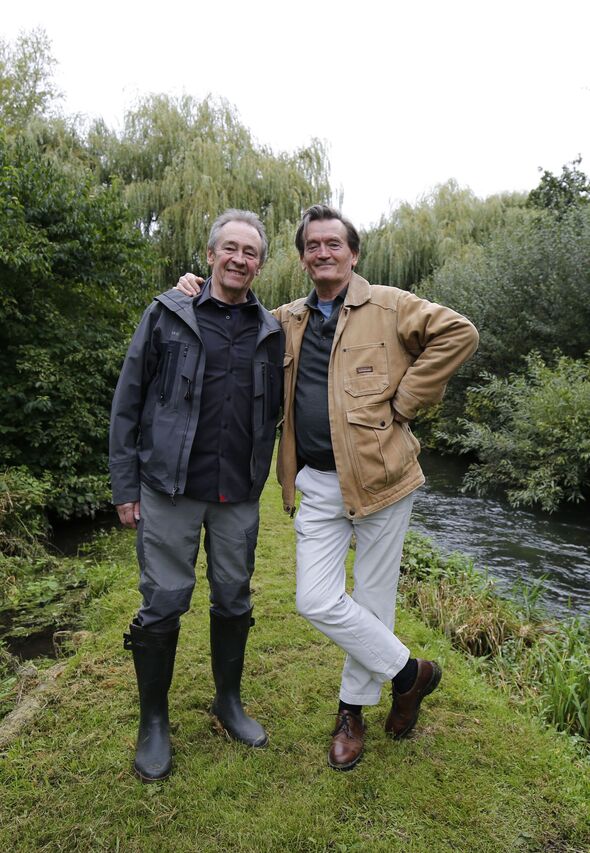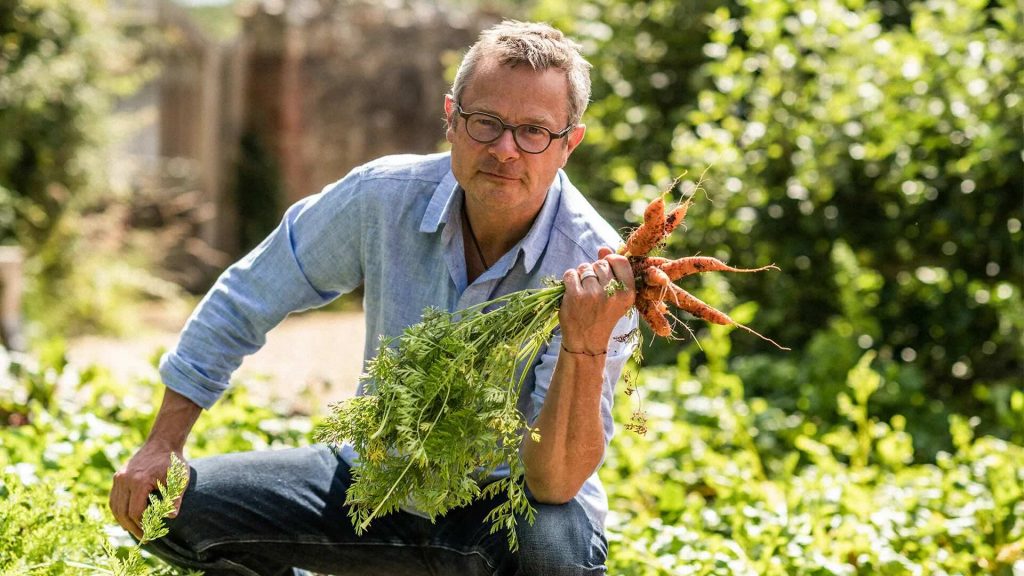River activists recently took the government to court for not upholding river regulations for farming. What does this mean for the future of Britain’s rivers?
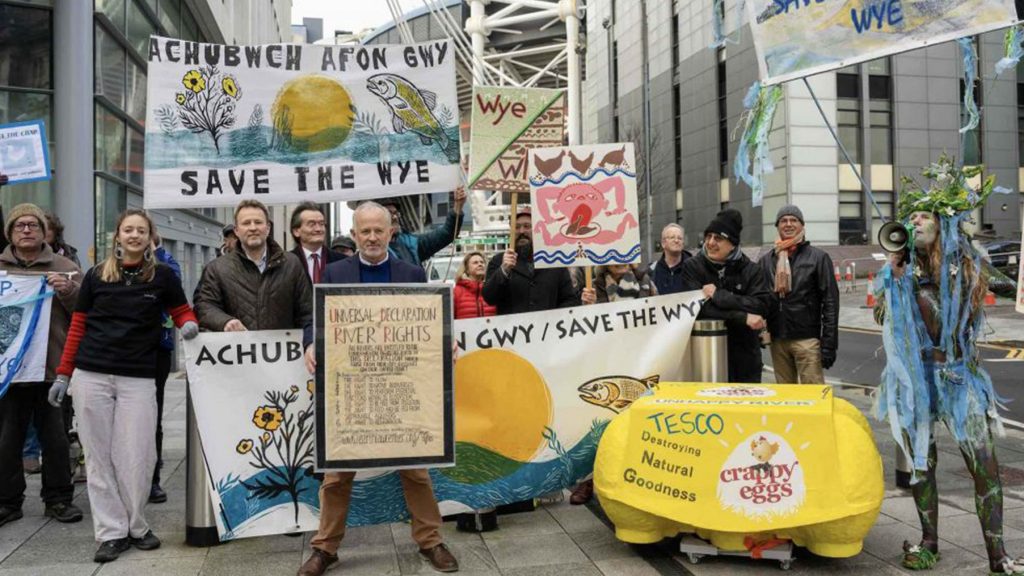
The sounds of a steel drumming band and chanting were heard outside the Cardiff Civil Justice Centre last Wednesday after a legal claim was made to protect the River Wye.
Clusters of river activists were camped outside the building waving signs that read ‘Save the Wye’ and some were dressed in blue-tinted costumes to represent the river. A 10-foot tall giant puppet called ‘Goddess of the Wye’ could even be seen dancing around in the air.
Campaign group River Action decided to take the UK Environmental Agency to court for not upholding farming and waste regulations. The River Wye has become polluted with high levels of chicken manure, according to recent studies. The organization led the demonstration with other community groups and notable celebrities including former singer Fergal Sharkey to celebrate their achievement in court.

“Today marked a very big milestone for River Action as the whole point of it was to make a more robust, proactive approach to holding government regulators and the whole system of environment protection to account,” said River Action activist Feargal Sharkey outside the courthouse.
Sharkey was a music pioneer during the 70s as a punk rock singer with the British band “The Undertones”. Now, Sharkey spends his time on the leading front of the river pollution movement. As vice chairman of River Action, he is one of the leading faces of the campaign against the pollution of Britain’s rivers.
Leaders of River Action hope that in the event they win the legal challenge it will present a unique and urgent opportunity to force the Environment Agency to start to enforce the laws that protect the River Wye.

“We took the government to court last week in Cardiff for breaking its laws. We know how agonizing the next few weeks will be as we await the judge’s decision but obviously, the odds are always stacked against us, if we were to win that case as a small charity, it would effectively expose a conspiracy that the Department of Agriculture has constructed the regulator to not regulate,” says River Action founder Charles Watson.
According to legal experts, if the UK Environmental Agency loses the case, it could lead to tighter enforcement of the rules on manure, including preventing any application if there is a risk of nutrients like phosphorous becoming overloaded in the soil, and, where there are breaches, potential fines or prosecutions.
The River Wye is the fifth longest river in the United Kingdom that lodges between the border of England and Wales, being a home to many species including otters and trout fish. Last year, however, its health was downgraded by Natural England due to large declines in wildlife from agricultural and industrial practices.
Back in 2018, farming rules for water were made to minimize the risk of pollution from applications of nutrients to land and livestock management. River Action has claimed in their case given to the judicial review, that the Environmental Agency has found a loophole through this regulation and has allowed more river pollution to occur.
“Specifically with the River Wye, we saw that there were laws and regulations that exist for this river in regards to pollution, which should have never, ever happened,” said Watson. “You are not allowed to dump or spread manure or fertilizers to the extent that it has been.”

River Action started in 2021 as a virtual campaigning group under Charles’ direction with other freelance campaigners. He and his team started to realize during their journey that it became a successful model to raise funds from other environmental organizations for campaigning.
Their campaign “Save The River Wye”, was launched the same year and specifically targeted the Intensive Poultry Industry, which was recognised as one of the prime causes of the recent environmental collapse of the river.
“I started to see alarming reports about the River Wye on social media because of all the runoff that was coming up and down the river from farming,” said Watson. “From my previous work, I knew what was going on, I knew how the food industry works and the pressure that is put on farmers.”
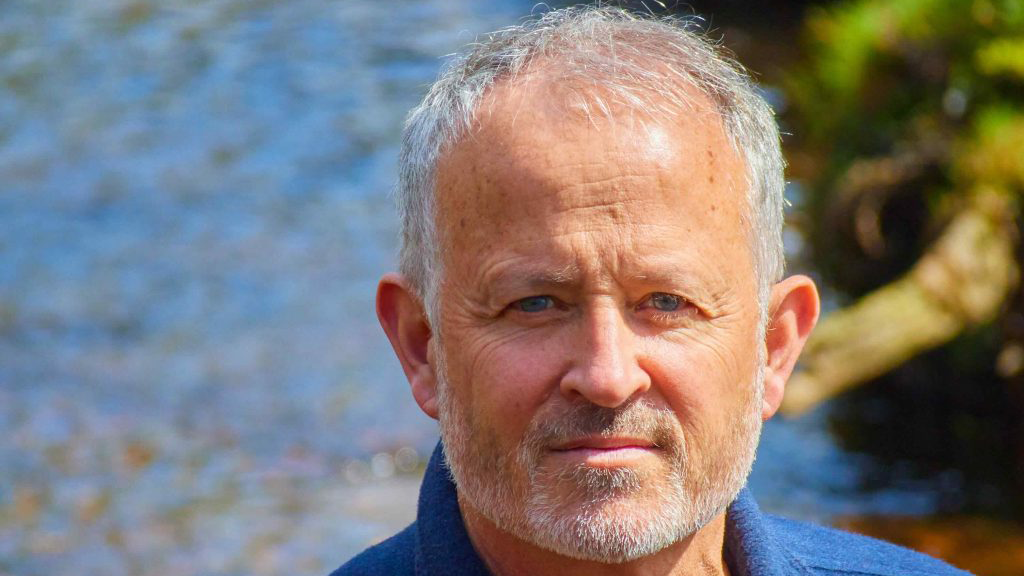
Whether they win the case or not is the least of their worries. Their main goal as the trial goes on relates to their mission statement — applying pressure and attention to the British River crisis.
The group has also organized campaigns for other rivers in the country including the River Thames and started other projects that tackle the impact of sewage discharging.
“It’s now time to drag this in front of the public and get the environmental agency under the law of the courts and hold them to account for what we believe is their illegal action of not doing their job properly,” said Sharkey.
The charity has continued to be supported by many other river organizations during the trial, such as the “Save The River Wye” (STRW) coalition, which is an informal group of citizens on both sides of the Welsh border who do work to help save the river from environmental destruction.
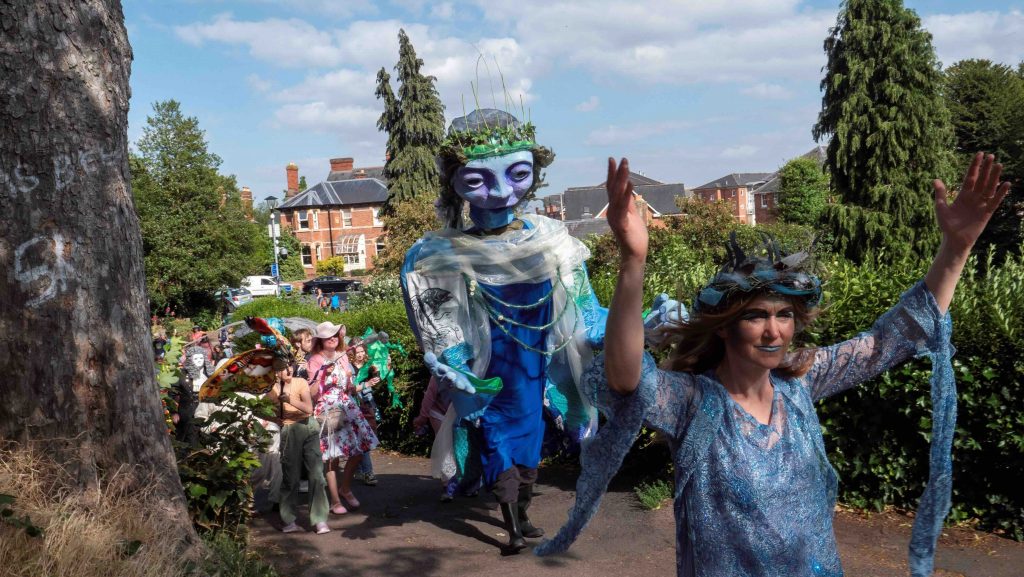
The coalition was one of dozens of groups who were in attendance for the court hearing and worked closely with River Action to raise awareness around their legal efforts for the River Wye.
“We raised quite a lot of issues with Charles Watson about the river before the case came about. The work we’ve done was local but we had him on a lot of those lines,” said STRW organizer Richard Tyler. “What his legal team has done in court has shown that they’ve got the story on rivers in this country bang on quite frankly.”
This decision will mark a milestone for the river movement and will envision a brighter future for all rivers besides the River Wye in the country
Many other notable British celebrities have also joined in on the conversation surrounding river pollution including British comedian Joe Lycett and actor Paul Whitehouse.
“It’s all down to people like us and the people who came out onto the streets and made a very noisy presentation in Cardiff about the River Wye. We’re not daunted by anything,” says Watson. “If we don’t prevail we’ll find another angle, and again, and again until we find something that will make a change for the better.”

